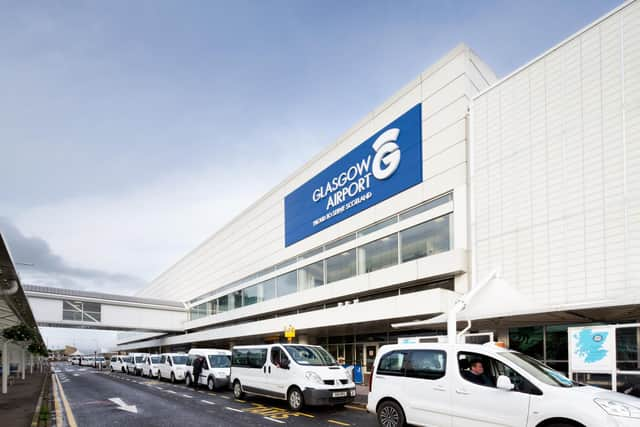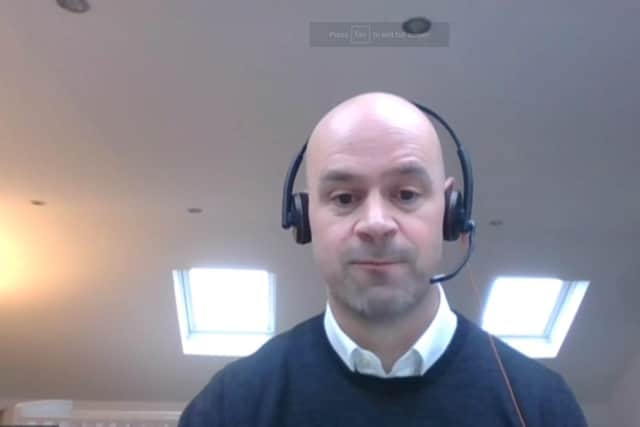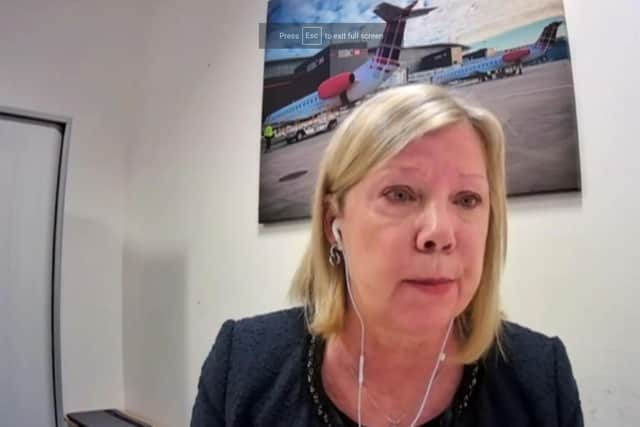Glasgow Airport 'hugely concerned' amid reports of passengers cancelling flights or not showing up because of Omicron
AGS Airports, which owns Aberdeen and Glasgow as well as Southampton, said it remained at a “standstill”, with Glasgow Airport’s traffic falling to its lowest for nearly 50 years.
Brian McClean, its communications and sustainability director, told the House of Commons’ transport committee: "We have been at a standstill for 20 months – it’s hugely concerning.”
Advertisement
Hide AdAdvertisement
Hide AdHe said of the new international travel restrictions because of the Omicron variant of the virus: "It's another hammer blow to our recovery, to the passenger confidence that had slowly been returning.


"We are now hearing anecdotal evidence of passengers cancelling flights and passengers not turning up for flights.”
"We were at a point where we believed we were starting to regrow and rebuild, but this is a real worry for everyone.”
The setback follows a “huge redundancy programme” by AGS last year, which Mr McClean said had resulted in 3,000 direct and indirect job losses.
AGS said later these included 200 direct job losses at the airports.


Mr McClean told the committee the company had also taken on an “extreme amount of debt”.
He said Glasgow Airport – Scotland' s second busiest after Edinburgh – expected to handle only 1.9 million passengers this year – the lowest since 1973.
He said: "This has set us back decades.
"We have not had any period of stability over the last 20 months.


"We haven’t been able to get going – it’s been stop-start.
"It is quite difficult to tell how it is going to pan out.
Advertisement
Hide AdAdvertisement
Hide Ad“As we come out of this, we are going to see fewer airlines with fewer aircraft, we are going to see greater consolidation.
"But there’s going to be the same number of airports, so that means our recovery is going to be intensely competitive, and that’s our concern.
"We are extremely worried about developments at the moment.”
Loganair chief commercial officer Kay Ryan told the committee the Glasgow-based airline’s corporate travel market had been "massively impacted" by the pandemic, such as because of the work from home policy adopted by many organisations.
She said: “We are at 75-80 per cent of 2019 levels.
"I can’t see that 20 per cent coming back any time soon, and that’s the concern.”
A spokesman for Edinburgh Airport said later: “We understand the need for restrictions to allow time for scientists to find out more, but they must be proportionate and discussed in a way that is constructive and informative.
"Unfortunately they are currently presented in a reactionary manner and that is proving damaging to the recovery of the industry.
“Passenger confidence is key and the swift move to call for increased restrictions only serves to make a fragile situation even worse, with passengers already cancelling flights or simply not showing up.
Advertisement
Hide AdAdvertisement
Hide Ad"This is not sustainable and does not provide solid foundations to plan a recovery from.
"There must be more recognition of the fragility of travel, its importance to our economic recovery and the need to support it.”
A message from the Editor:
Thank you for reading this article. We're more reliant on your support than ever as the shift in consumer habits brought about by Coronavirus impacts our advertisers.
If you haven't already, please consider supporting our trusted, fact-checked journalism by taking out a digital subscription.
Comments
Want to join the conversation? Please or to comment on this article.
